Policy
A Real Deal: a research action agenda for transforming Australia in and beyond the pandemic
This Community Report documents our “Listening Campaign,” the first step towards creating a community-led agenda for economic and social transition in Gladstone.
This Community Report documents our “Listening Campaign,” the first step towards creating a community-led agenda for economic and social transition in Gladstone. It identifies three pillars for that agenda, access to quality healthcare, housing and overall liverability.
Citation:
Tattersall, A., Bryant, G., Hancock, R., Napier, I. and Stears, M. (2020) “A Real Deal: A research action agenda for transforming Australia in and beyond the pandemic,” Sydney Policy Lab, University of Sydney (September 2020)
Executive summary
This report outlines a research and organising agenda for a genuine deal between the market, state, and civil society that works for people and the environment: a Real Deal.
It harnesses the strengths of university researchers, collaborating with community and business partners, to outline the five benchmarks that can guide the development of a Real Deal, building on the best of existing research on the Green New Deal and the social and economic impacts of the pandemic.
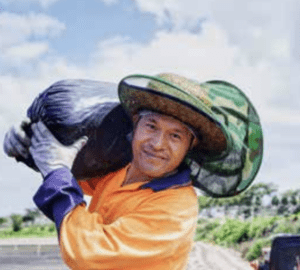
The strength of this project lies in the Real Deal coalition. Instead of creating fast policy, driven by specific issues, we are focusing on building relationships first. Our method is grounded in co-design by a set of groups that do not traditionally work together. We aim to show that it is possible to share challenges and find common ground even in a time of crisis.
The report builds on the lessons made clear by the COVID-19 pandemic: we are facing intersecting crises across health, economy, race and climate. The pandemic demanded policy responses that suspended many of the usual political and economic constraints and opened up new social possibilities. But the deal currently on offer to people in Australia has fallen short of what is needed to address the present emergency and to build a better future.
COVID-19 is exposing long-standing and deep-seated inequalities in our communities, workplaces and politics. The unequal impacts of COVID-19 have been created by the many bad deals that have been struck in the past and remain with us today. These challenges are, however, clearer now than they would normally be. What’s more, the pandemic has revealed the enormous capacity of ordinary people to work together to create a healthy society.
Around the world, momentum is building for a Green New Deal that can solve the multiple crises we are facing at the same time. The biggest crisis since the Great Depression, when the original New Deal was made, has made such an approach both more urgent and within reach. The New Deal program of labour rights, welfare measures and public infrastructure showed how reimagining the relationship between the government and citizens can turn the course of a crisis.
We are at a turning point. The risk now is that rather than embracing the opportunities presented by the current moment for positive change, the post-COVID-19 world will be shaped by faux deals that are too limited in the issues they tackle, the people they involve or the scale of their ambition for change.
The focus of our project is how to make sure that what emerges from the current crisis is a Real Deal that works for people and our planet. A Real Deal goes well beyond increased public expenditure, by transforming the institutions that shape our relationships with each other and the environment that supports us all.
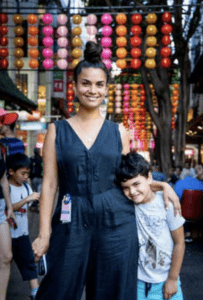
A Real Deal in Australia starts from an acknowledgement that Aboriginal and Torres Strait Islanders are the First Peoples and their sovereignty must be recognised in words and in deeds. It insists that civil society collaboration must sit at the centre of a democratic society and economy and embraces the embeddedness of our economy in the environment. To make a Real Deal, attention must be devoted to including and empowering those commonly left out
of policymaking and debate. A Real Deal also recognises that the challenges of 2020 exist in the midst of a climate crisis, and policy solutions need to respond to the scale of this challenge.
This report outlines five benchmarks for creating a Real Deal. Together, the benchmarks distinguish a Real Deal on the basis of whether it is genuinely transformative, addresses inequality and insecurity, makes plans for meeting social and environmental needs, and is both participatory and collaborative.
1. MAJOR PUBLIC INVESTMENT IS BACK, BUT POLICY MUST BE ATTUNED TO THE SHAPE OF THE ECONOMY TOO
When confronted by the global emergency posed by the pandemic, many governments demonstrated that they can spend big to solve urgent problems when they choose to. Now is not the time to withdraw public spending for the sake of reducing public debt. It is equally important to recognise that simply increasing government
2. THE PANDEMIC EXPOSED PRE-EXISTING INEQUALITIES AND INJUSTICES THAT MUST BE ADDRESSED FOR GOOD
The experience of COVID-19 has not been equally shared. Both
the impacts of COVID-19 and the lockdown have been shaped by social differences and economic inequalities that have not always been recognised by otherwise innovative policy measures. We need policy that addresses the root causes of marginalisation, not only to buoy us through this crisis, but to equip us to deal better with other equally foreseeable crises, including climate change.
3. WE NEED BOLD COMMUNITY VISION FOR AN ECONOMY THAT SERVES US ALL,
AND A PLAN TO MAKE IT HAPPEN
Crises invite us to think differently about what is possible; we need to keep this mindset. Rather than achieving policy reform or aggregate spending goals for their own sake, what is needed is a clear vision of who and what our economy is for. We identify six areas for thinking through this vision, across First Nations sovereignty, care, climate, work, justice and citizenship, that will be essential ingredients in democratically planning for a Real Deal that delivers multiple wins for people and the environment.
4. A REAL DEAL IS GENERATED BY THE ACTIVE PARTICIPATION OF PEOPLE IN DECISIONS THAT AFFECT THEM Achieving long-term outcomes that strengthen and build resilience in communities requires attention to how policy is created. Positive change is not handed down by appointed representatives and designed far away from communities by experts. Stemming from the broader crisis of democracy, the voices of those who know what their communities really need have often been missing from COVID-19 debates. A Real Deal is about generating quality connections between people that can support the development of policies informed by the full range of lived experiences.
5. COLLABORATION IS THE FOUNDATION FOR A REAL DEAL THAT CAN DELIVER LONG-LASTING SOLUTIONS
At the heart of the best of our reactions to the COVID-19 crisis has been a capacity to collaborate. In contrast, where policy has not involved communities as genuine partners it has been fragile and short-lived. The intersecting crises we face cannot be dealt with one at a time, nor by the state, market, or civil society alone. A Real Deal harnesses the power of collaboration to coordinate across issues, institutions and places to win long-lasting change.

This report is full of case studies that tell the stories of real solutions. Rather than coming up with yet another set of hypothetical policy proposals, our real solutions are drawn from the world of our community and business partners. From expanding renewable energy, to reimagining aged care, to organising workers, to building cooperative enterprise, to making responsible investments, to providing community housing, to planning climate and energy justice, to practising mutual aid, to collaborating across difference, our case studies represent already existing strategies upon which a Real Deal can be made.
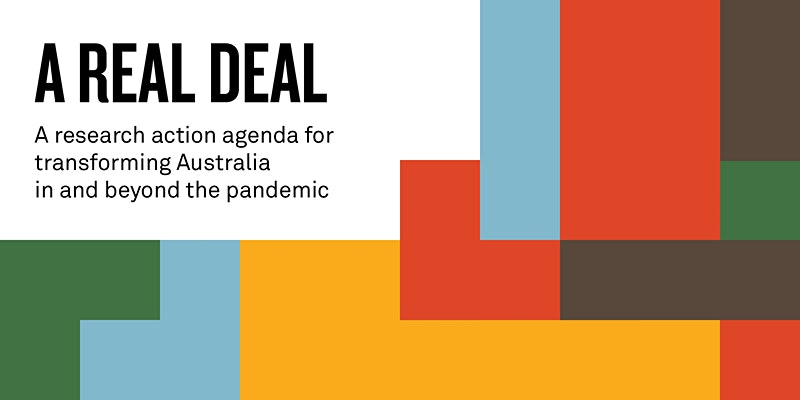
More work
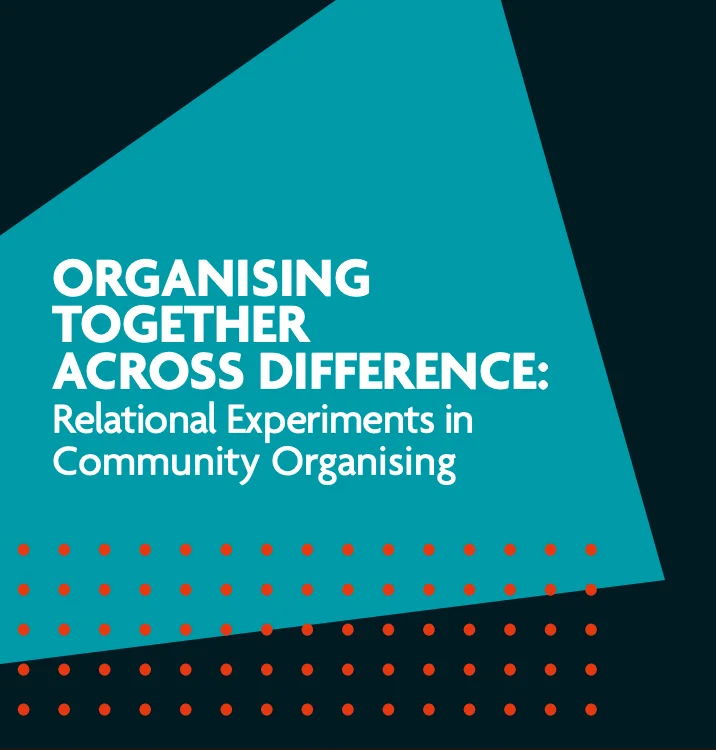
Organising Together Across Difference: Relational Experiments in Community Organising
In a world of increasing polarisation, this report documents an 18 month research project that analysed how Citizens…
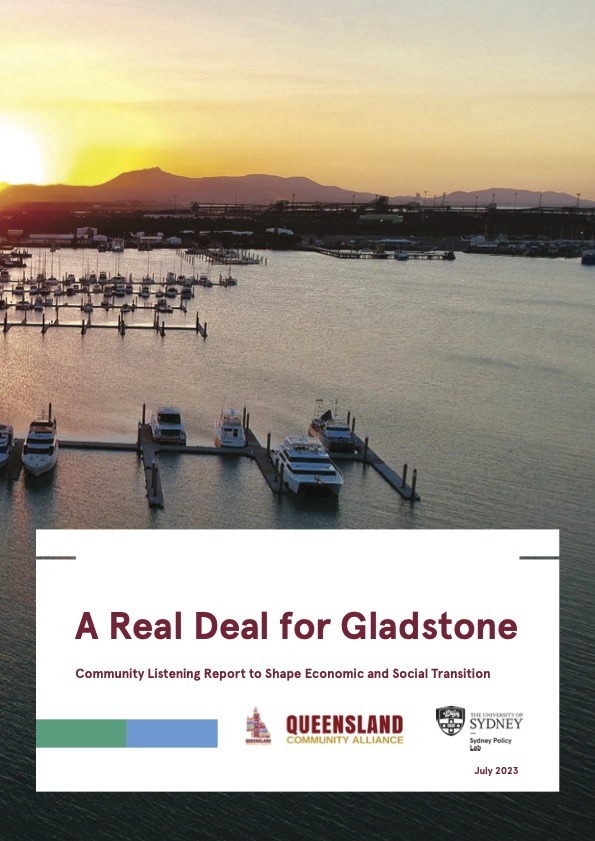
A Real Deal for Gladstone: Community Listening Report to Shape Economic and Social Transition
This Community Report documents “Listening Campaign” run in Gladstone Queensland, the first step towards creating a community-led agenda…
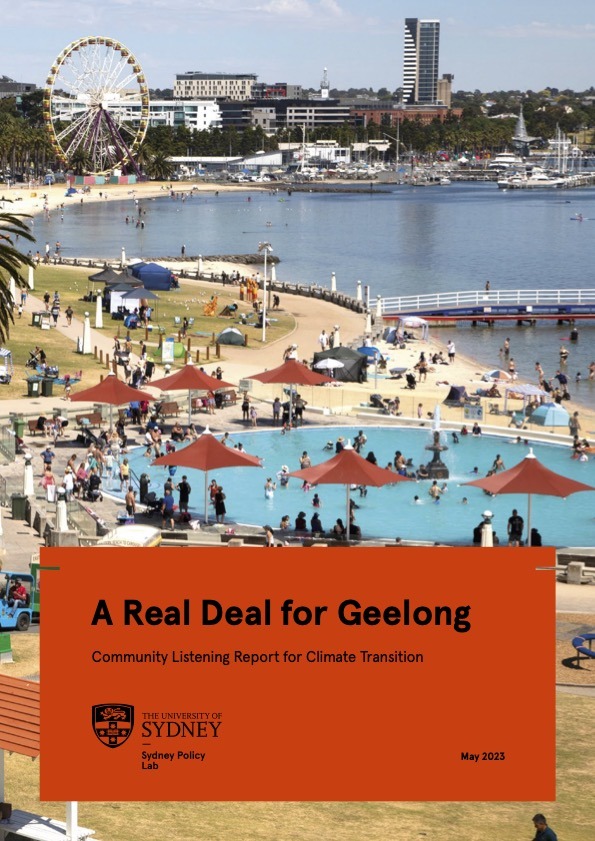
A Real Deal for Geelong: Community Listening Report for Climate Transition
This report outlines a new approach to generating strategies for climate transition, created through a community-led agenda built…